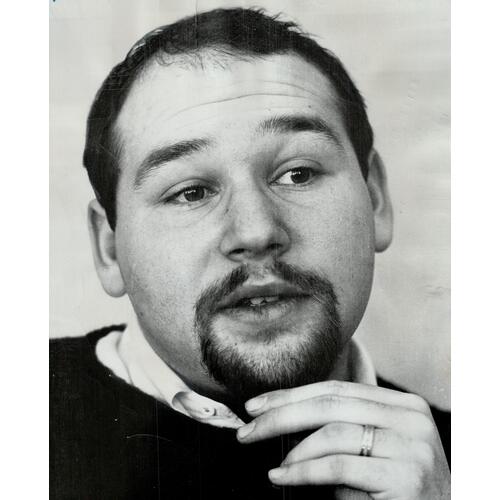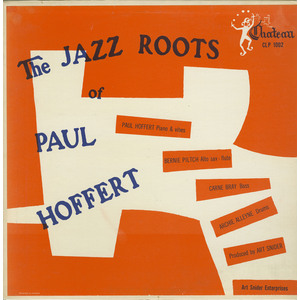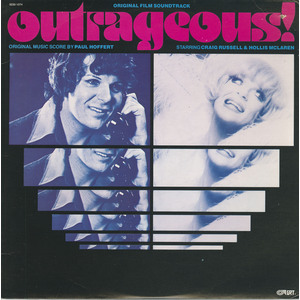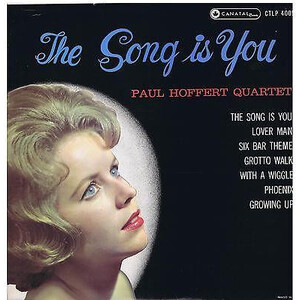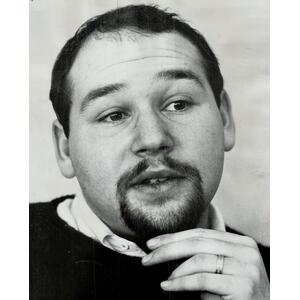Hoffert, Paul
Websites:
https://hoffert.ca/, https://www.thecanadianencyclopedia.ca/en/article/paul-hoffert-emc
Origin:
Brooklyn, New York, 🇺🇸 - Toronto, Ontario, 🇨🇦
Biography:
Paul Hoffert has the soul of an artist and the mind of a scientist.
Dr. Hoffert is Chair of the Bell Broadcast and New Media Fund, Chair of the Screen Composers Guild of Canada, Chair of the Glenn Gould Foundation Inc., and Professor of Music, Law, and Information Science at University of Toronto. He is former Faculty Fellow at Harvard University Law School, President of the Academy of Canadian Cinema, Chair of the Ontario Arts Council, and a founder of the Canadian Independent Record Production Association (CIRPA).
By the time he was twenty-six, Dr. Hoffert was an established jazz recording artist, television performer, off-Broadway musical author, and film composer. He founded Lighthouse, a rock band with horns and strings that sold millions of records, toured the world and earned three Juno Awards as Canada’s #1 rock band. He was inducted into the Canadian Rock and Roll Hall of Fame. And continues to perform with Lighthouse and his jazz ensembles.
In the 1970s and ‘80s Hoffert focused on composing film and television music, earning him the San Francisco Film Festival and three SOCAN Film Composer of the Year awards. His concert music includes a Juno-award winning violin concerto.
Dr. Hoffert has parallel achievements in science and technology. He was a researcher at the National Research Council of Canada and Vice President of DHJ Research, where he invented digital audio algorithms, microchips, and musical instruments. In 1992, he founded CulTech Research Centre where he developed advanced new media such as digital video telephones and networked distribution of CD-ROMs. From 1994 to 1999, he directed Intercom Ontario, a $100 million trial of the world's first broadband-connected community that landed him on the cover of the Financial Post and in the Wall Street Journal.
He has authored best-selling books: “The New Client”, "All Together Now", and "The Bagel Effect" and a textbook on composing music for videogames.
In 2001 he received the Pixel award as the new media industry’s “Visionary of the Year” and in 2005 he received Canada’s highest honour, the Order of Canada.
Dr. Hoffert is known for expecting the unexpected. The Financial Post described him as one of the New Mandarins along with Bill Gates and The Toronto Star said “he is the ideal visionary for the Digital Age”. His incisive thinking brings clarity to complex issues and his lively presentations make him a favorite with audiences everywhere.
Paul Matthew Hoffert, LLD, CM (born 22 September 1943 in Brooklyn, New York) is a recording artist, performer, media music composer, author, academic, and corporate executive. He studied mathematics and physics at the University of Toronto. He later studied music composition with Gordon Delamont. In 1969 the 26-year-old Hoffert co-founded Lighthouse, a rock group that sold millions of records and earned three Juno Awards as one of Canada's leading pop bands. His film music earned him a San Francisco Film Festival and three SOCAN Film Composer of the Year awards, and included films such as: The Proud Rider (1971), The Groundstar Conspiracy (1972), Outrageous! (1977), High-Ballin' (1978), The Shape of Things to Come (1979), Wild Horse Hank (1979), Mr. Patman (1980), Deadly Companion (1981), Paradise (1982), Fanny Hill (1983), Bedroom Eyes (1984) and Mr. Nice Guy (1987).
In 2001 Hoffert received the Pixel award as the New Media industry's "Visionary of the Year".
Hoffert has parallel achievements in science and technology. He was a researcher at the National Research Council of Canada in the early 1970s and returned to research in 1988 as Vice President of DHJ Research, where he invented precursor algorithms to MP3 audio compression, as well as microchips for Newbridge Microsystems, and products for Mattel, Akai, and Yamaha.
In 1992, Hoffert founded CulTech Research Centre at York University, where he developed advanced media such as digital video-phones and networked distribution of CD-ROMs. From 1994 to 1999, he directed Intercom Ontario, a $100 million trial of the world's first completely connected broadband community that landed him on the cover of the Financial Post and in the Wall Street Journal. He is an expert in online content distribution and usage consumption.
Hoffert was awarded the Order of Canada [CM] in 2004 for his contributions to music and the arts. The Canadian Government citation reads: "[Mr. Hoffert] is multitalented, determined and a visionary. Paul Hoffert is a founding member of the rock group Lighthouse and an award-winning composer who has scored countless feature films and television productions. He received an Honorary PhD from the University of Toronto in June 2012."
"Formerly a teacher at the Faculty of Fine Arts at York University, Hoffert founded the University's CulTech Research Centre and is an expert on new media and technology. A founding director of the Canadian Independent Record Producers Association and the Academy of Canadian Cinema and Television, he was instrumental in bringing about the Gemini and Prix Gémeaux awards. He was the first artist to chair the Ontario Arts Council, and he continues to be involved in multiple arts organizations and the Bell Broadcast and New Media Fund."
